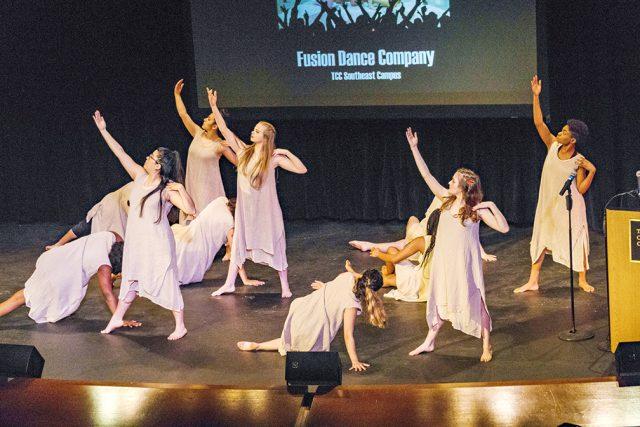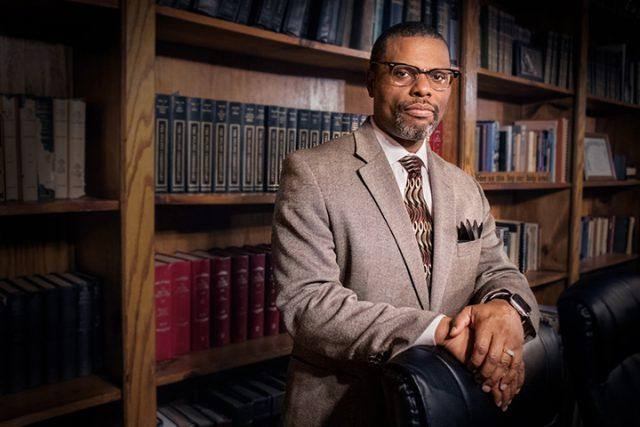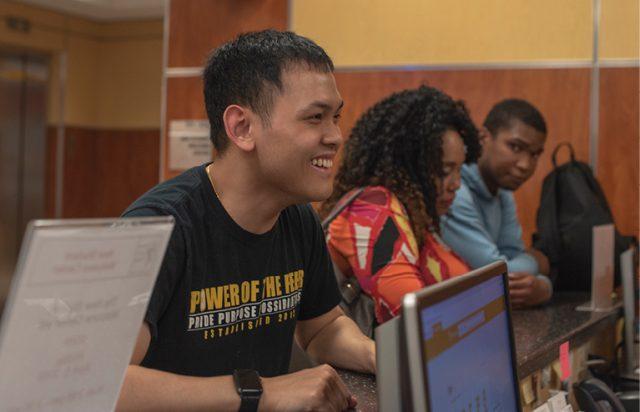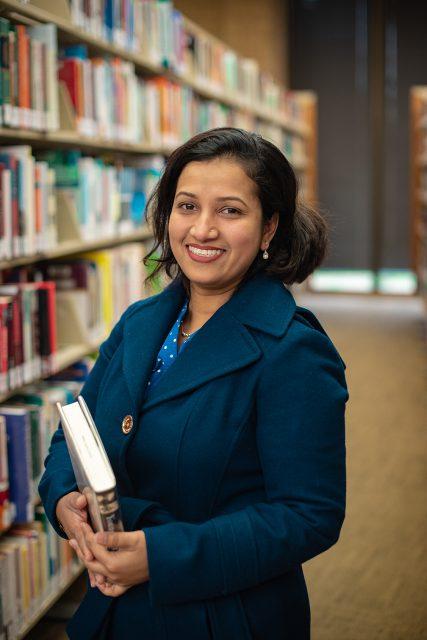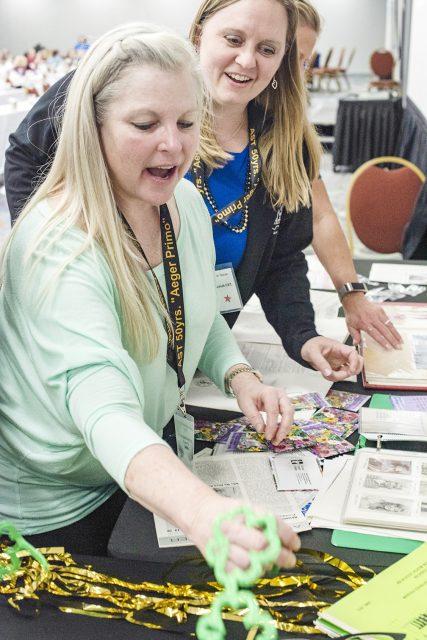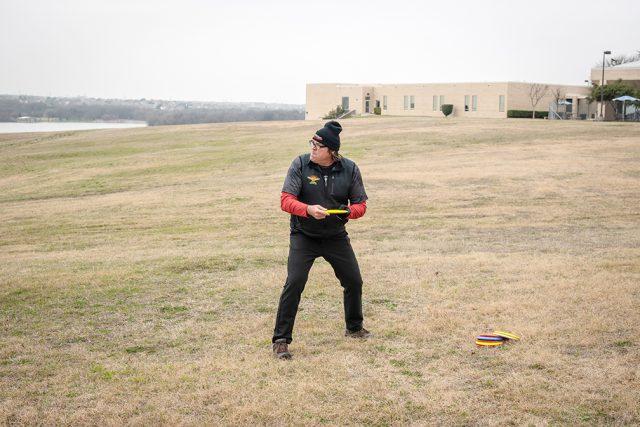By JW McNay/editor-in-chief
“African-American history is American history,” said a speaker on SE Campus during Celebrating Strides.
Actress Denise Lee was one of many speakers at the event Feb. 28, which capped off African-American History Month with a celebration of the arts.
The event’s theme was “Strides in the Arts” and focused on the progress and contributions made by African-Americans in music, dance, drama, visual art and poetry.
The masters of ceremonies, SE students Brittany Jones and Somiari Tobin, introduced each presenter, and the evening started off with a focus on music.
Pianist and SE music adjunct instructor Peter Rioux discussed the emergence of many music genres and how their influences carry on today. In 1920s Harlem, New York, there was an intellectual, social and artistic explosion, Rioux said.
“During this time, it’s unfortunate that the residents of that neighborhood were heavily exploited in many ways including being charged totally absurd rent rates,” he said to attendees.
This gave birth to “rent parties” where residents would host parties and charge a cover, and these emerging music genres were commonly showcased there. After describing genres such as boogie woogie and jazz, Rioux performed a piece as an example.
Dance was the next art and included performances from all of the TCC dance companies: SE’s Fusion Dance Company, South’s Continuum Dance Company, NE’s Movers Unlimited Dance Company and
NW’s Mosaic Dance Project.
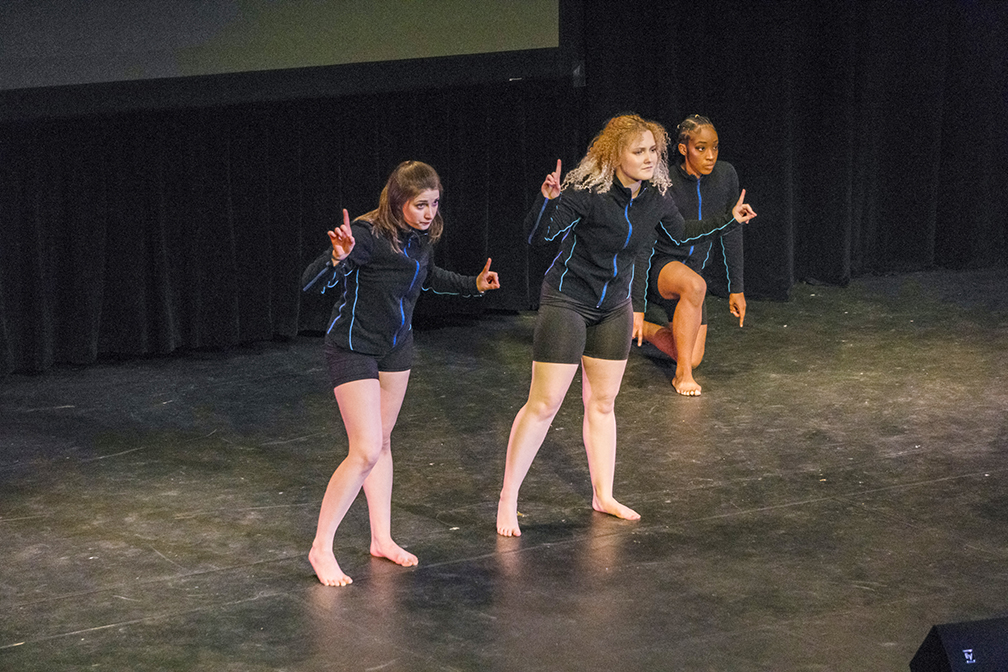
SE Fusion Dance Company member Whitney Hayden said performing at the event was a personal experience.
“I’ve grown up with my grandmother working as a housekeeper for a lot of white families and also her mother being a slave,” she said. “It was really important to me to dance this dance and find happiness from something that happened in the past and find the good that came from it.”
Drama was celebrated next with Lee introducing a five-minute excerpt from the play A Raisin in the Sun, which was performed by SE drama students. Playwright Lorraine Hansberry wrote the play, which debuted on Broadway in 1959. It’s a culturally-specific play about the American experience, Lee said.
“I say that as opposed to saying ‘It’s a play about black people’ because in my opinion, that negates its place in American history,” she said.
SE liberal arts instructional assistant Christopher Blay spoke next about strides made in the visual arts and social practice.
“Social practice, in art, relates to art that interacts and originates with specific communities or people striving for positive change in their communities,” he said.
For example, Blay has a project plan to convert a civil-rights-era transit bus into a monument as a way to talk about the civil rights movement. He also presented visuals in a slideshow with other examples and artists he finds inspirational.
The final performer was Shy “ShySpeaks” Amos in celebration of poetry. ShySpeaks performed two spoken-word pieces, one with music and one without.
“Spoken word is a thing that gives you the ability to have a platform to speak, but it’s nothing if no one is listening,” she said to the audience.
The latter performance was titled “Whatever It Takes” and was interactive. Whenever she said “whatever,” the crowd responded with “it takes” as she told a story about an impoverished man trying to get a job.
A reception followed in the Commons with a live band playing music as attendees could stick around for food and drinks.
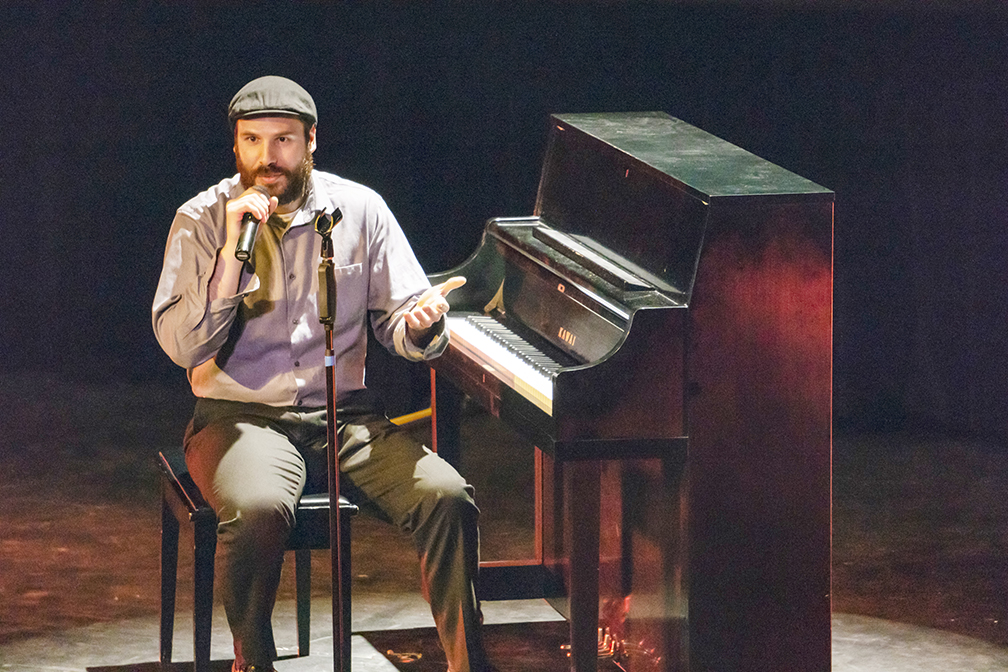
Writer and SE student Despina Sivan enjoyed the event but wished the event got more into African-American female contributions to music.
“I have a deep appreciation for black music and arts,” Sivan said. “Part of the reason why I personally am a writer is because of the influences I had growing up, whether it had been Lauryn Hill, Lil’ Kim [or] Toni Braxton. Many others have inspired me to do what I do today.”
SE student development services director and event organizer Doug Peak said he hoped attendees learned a lot from the event and the performances.
“Our hope is that that’s what happened here with everybody that was in attendance, that they were moved in some way to where they’ll remember it and come to the next event,” he said.
Celebrating Strides is hosted each year near the end of African-American History Month in February. The event is districtwide and is hosted on a different campus each year.
“What we have to do is celebrate it, flaws and all, whatever part our ancestors played in it: The good, the bad [and] the ugly,” Lee said. “All of it makes us who we are today.”






















